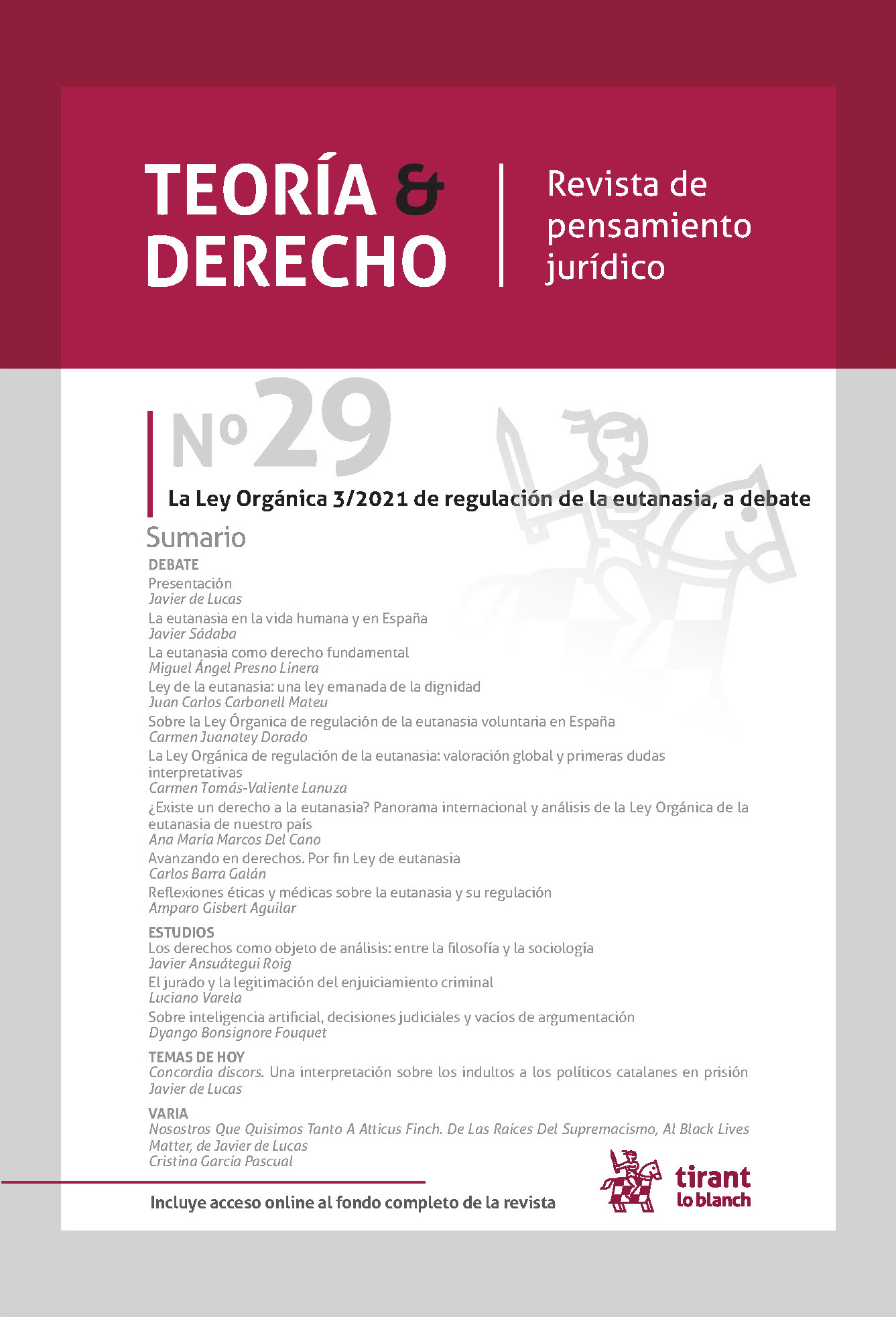Euthanasia in the Human Life and in Spain
DOI:
https://doi.org/10.36151/td.2021.001Keywords:
euthanasia, pain, the right to die with dignity, individual freedomAbstract
In contrast to the Corpus hippocraticum, both Plato and the Stoics considered euthanasia so-mething natural. On the verge of its possible legalization in Spain, the author clarifies the main concepts of this ancient debate around the right to die with dignity within the concerns of the human life (of human beings who come to life without asking for it). According to the reasons and arguments provided euthanasia is as a legitimate and coherent aspiration not only with freedom and respect for one’s own image but also as a fact that fits into the logic on which it is decided in the field of medicine and morality: the avoidance of that pain that when it goes beyond the body is called suffering. In this regard, the different references of the current debate on euthanasia are repositioned, from the unjustified harshness of the current Penal Code, to the possibilities of the living will, from palliative care to the meaning of free will, from a public opi-nion favorable to its regulation to the need for a commitment that concerns us all.
Downloads





















